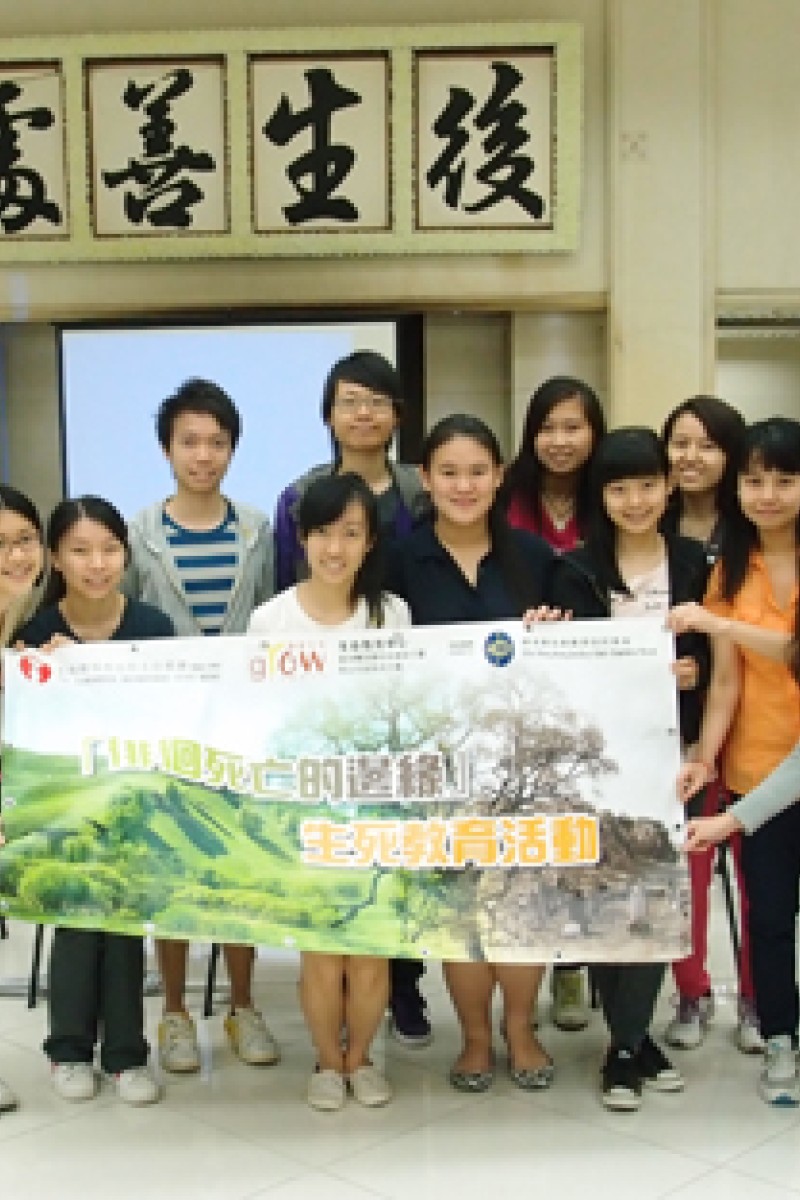
A workshop helps you learn to accept the inevitable
 Joseph Ho (third from left) visits a funeral parlour.
Joseph Ho (third from left) visits a funeral parlour.Now some social workers want to break the taboo by turning a negative subject into something positive. "Talking about death can actually do us some good; it will make us understand life more," says Lou Wing-yee, a social worker at the Samaritan Befrienders Hong Kong.
"Death is unpredictable and no one knows when exactly he or she is going to die so we want to let teenagers talk about the subject openly when they have a chance."
Lou's organisation held a series of workshops called "Hovering Over the Edge of Death" last summer. The workshops included activities that resembled real-life scenarios. Participants even got to plan their own funeral so they could discuss death from a personal point of view.
Joseph Ho Hei-chi, 16, was one of the participants. "The topic is appealing to me. I don't pay much attention to the issue of death or the value of life. I thought the workshop would be a new experience for me," says Joseph, who studies at Wah Yan College.
He attended three sessions of the workshop with different activities. In one session, he was asked to organise his own funeral.
"It was pretty hard to imagine my death because I thought it was still a long way ahead," he says.
"But I tried to take a serious and solemn approach and organised my funeral as if it was real. And I tried to feel for my family and friends."
He chose to have a Catholic funeral in a garden. "I would like the atmosphere to be light-hearted. I don't want any tears," he says.
To make the experience as real as possible, participants were given a chance to lie inside a fake coffin made of plastic foam.
"I was listening to my last words being read out while I was lying there with my eyes closed. I had never imagined a funeral could be so comforting," the teen says.
Joseph shares his thoughts about death with other participants.
Joseph also joined other participants on a tour of the Diamond Hill Funeral Parlour. Joseph had never been to a funeral parlour before.
"I learned how much a basic funeral costs and what rituals are carried out in the funeral hall," he recalls. "Then I saw all the coffins displayed in a room. I was so surprised by the variety of styles and textures. It's a tough decision and I guess I'll spend a great deal of time if I have to choose mine."
The third session, called the "HIV/Aids X-perience" at Crossroads Village, was arranged so participants could learn about the life of a person with the deadly disease. Another session called "Blind X-perience" allowed them to experience what it feels to be blind by being left in pitch darkness and led around by a blind person.
"Walking in the shoes of Aids patients and blind people made me reflect on life more," Joseph says. "People who live with the constant fear of death learn to cherish every single moment they can spend with their beloved ones.
"I was inspired to think of my relationship with my own family and friends. I'm going to devote more time to them.
"I'm also going to make good use of my time from now on. We shouldn't take our good health for granted. Every second of our life actually matters.
"The workshop has given me new insights into life and death."
